Playwright Neil Simon was an underrated astute observer of human life
OBITUARY: Although his work was sometimes dismissed as a lightweight because he made audiences laugh, US playwright Neil Simon had a lot to say about people and human nature
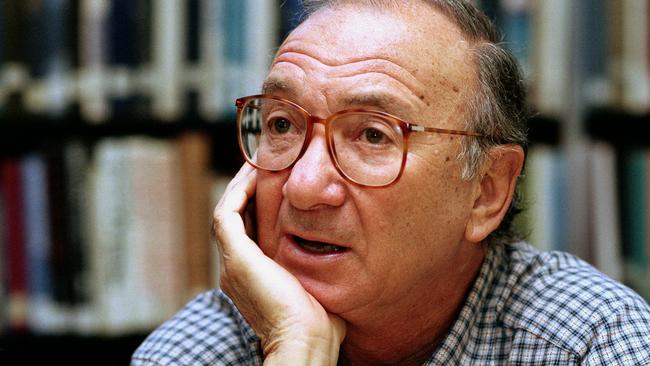
Today in History
Don't miss out on the headlines from Today in History. Followed categories will be added to My News.
SOME dismissed him as a literary lightweight because his plays were so funny and revolved around such ordinary people. But Neil Simon’s fans knew that the American playwright, who died this week, had a lot to say about people. He wrote about friendships, marriages, growing up, growing old, infidelity, divorce, hopes, desires and dreams.
Drawing from real life, he created characters based on his own experiences or people he knew. And yet his characters were also an escape from real life. Usually nothing too terrible, or too good, happened to them. They were also focused on what was happening in their own world rather than the entire world. He once said that he didn’t write “political” plays because he believed the family was the “microcosm of what goes on in the world”.

Simon’s best-known work, The Odd Couple, which premiered in 1965, was about two divorced men with different lifestyles sharing an apartment. Although the growing divorce rate was a hot topic at the time, his play was about how hard it was for different people to live with each other and how relationships can stunt or spark our voyages of self-discovery. It was funny and spoke to audiences.
A prolific, financially successful and popular playwright, Simon also won four Tony awards, a Pulitzer, and was nominated for several Oscars and Golden Globes.
He was born Marvin Neil Simon in the Bronx, New York, on July 4, 1927, the second child to garment salesman Irving Simon and his homemaker wife Mamie (nee Levy). Irving constantly argued with Mamie and would often “escape” by going to the movies and immersing himself in comedies.
From an early age, Simon started writing, also as a way of escaping from the family angst. Rather than looking to his parents for guidance, his brother Danny was his mentor.
Graduating from high school in 1945 he went to New York University, where he signed up to the US Army Air Forces and expected to fight. But the war ended before he finished basic training. Instead he ended up as a sports writer for an army newspaper.
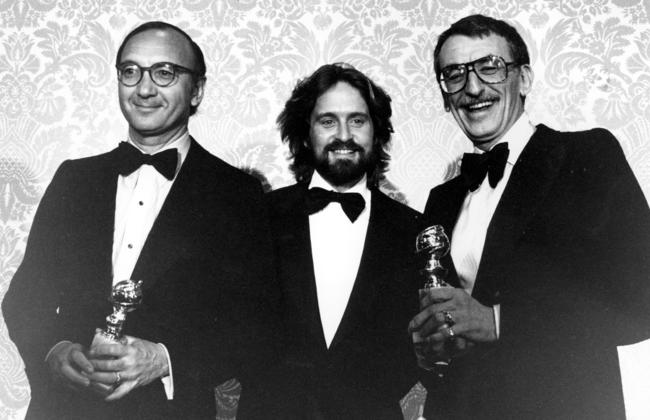
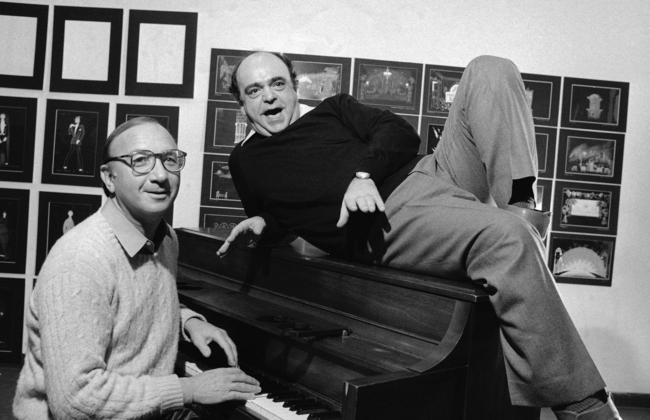
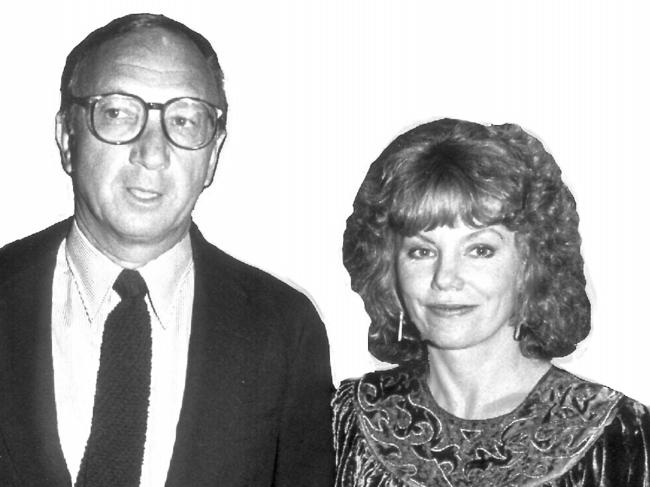
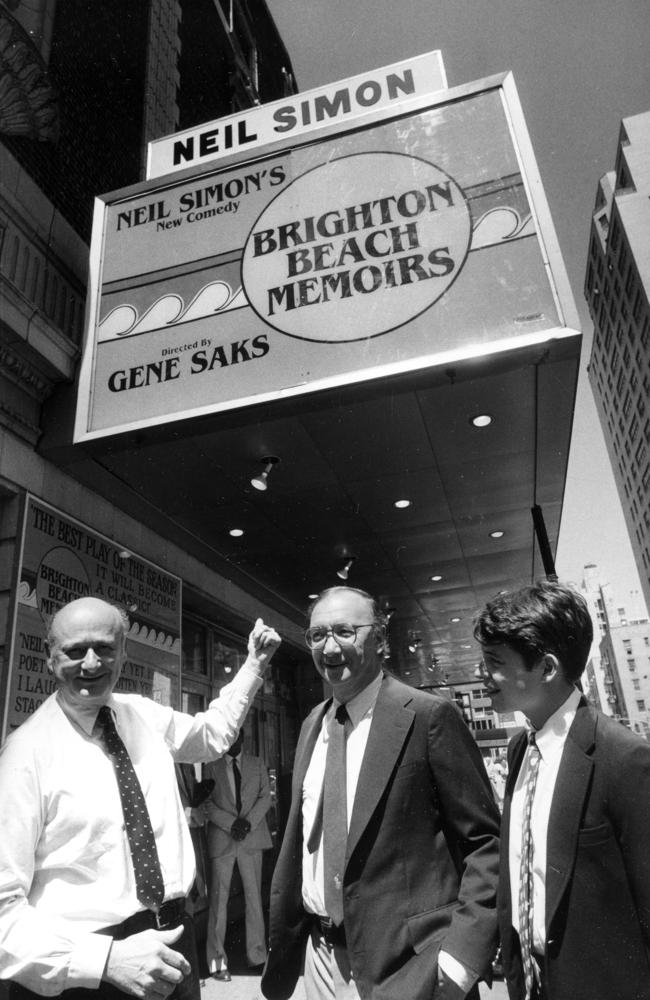
While still in the military, in 1946 he went back to university, this time in Colorado, but left when he was discharged. Finding work at Warner Brothers, courtesy of Danny who was already working there, he also contributed to scripts for radio and TV shows. In 1948 he and Danny quit Warners to try writing scripts for radio and later TV.
Simon honed his craft, writing gags for programs in the 1950s with comedians such as Jackie Gleason and Jerry Lewis. In 1953 he won his first Emmy for his writing on Show of Shows and married dancer Joan Baim.
Although successful in his TV writing career, he started writing his first play in 1958. It took him three years to complete Come Blow Your Horn, about a young, inexperienced man who leaves home and is introduced to the world by an older brother. The play premiered in 1961, ran for more than 600 performances and was adapted for film in 1963, starring Frank Sinatra.
Falling in love with theatre, his next play was a musical vehicle for comedian Sid Caesar called Little Me (1962).

He had another hit with Barefoot In The Park (1963), which ran for more than 1500 performances and was also adapted for film. In 1965 The Odd Couple established his reputation as a writer of hits, winning him his first Tony Award and spawning a hit film and a TV series.
He also wrote the book for the 1966 stage musical Sweet Charity and a screenplay for the film After The Fox. Simon capped off a successful run of hits with Last Of The Red Hot Lovers in 1969. There were more hit plays in the ’70s including Prisoner Of Second Avenue and California Suite.
His wife Joan died of cancer in 1973 and he later married actor Marsha Mason, who starred in the 1977 film The Goodbye Girl, which was written by Simon. The couple split up in 1983.
In the ’80s he began a series of autobiographical plays starting with Brighton Beach Memoirs. He also married actor Diane Lander, but divorced in 1988. His 1991 Pulitzer Prize-winning play, Lost In Yonkers, showed he was still at his peak. He remarried Lander in 1990 but it ended in 1998. He then married actor Elaine Joyce.
The last play he wrote, Rose’s Dilemma, which premiered in 2003, closed after six weeks and a revival of his Brighton Beach Memoirs in 2009 also closed early because of poor ticket sales.
Troubled by illness in his advancing years, he suffered from renal failure and Alzheimer’s before dying on Sunday with complications from pneumonia.
He is survived by his three children and wife Elaine.

